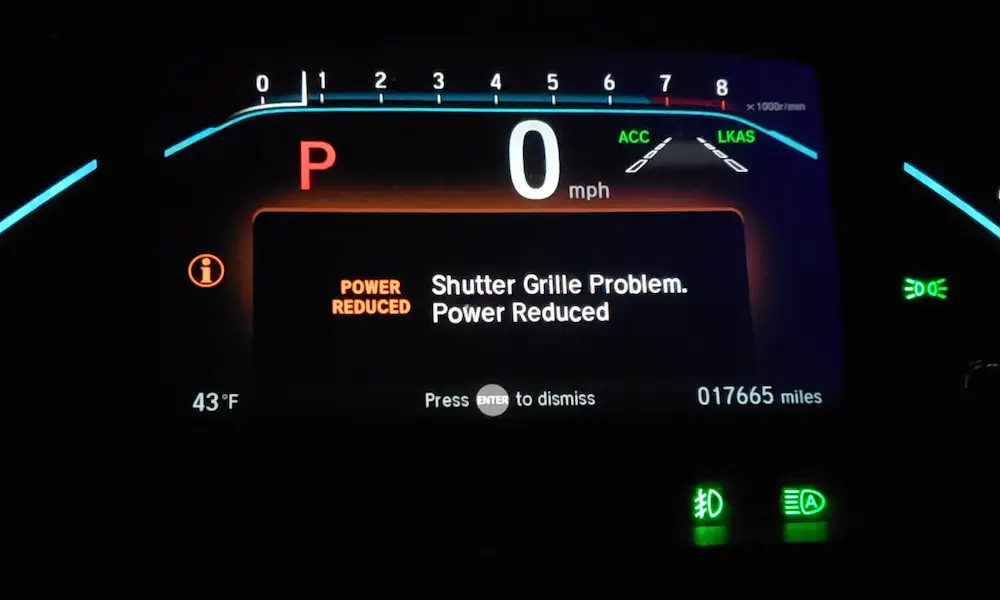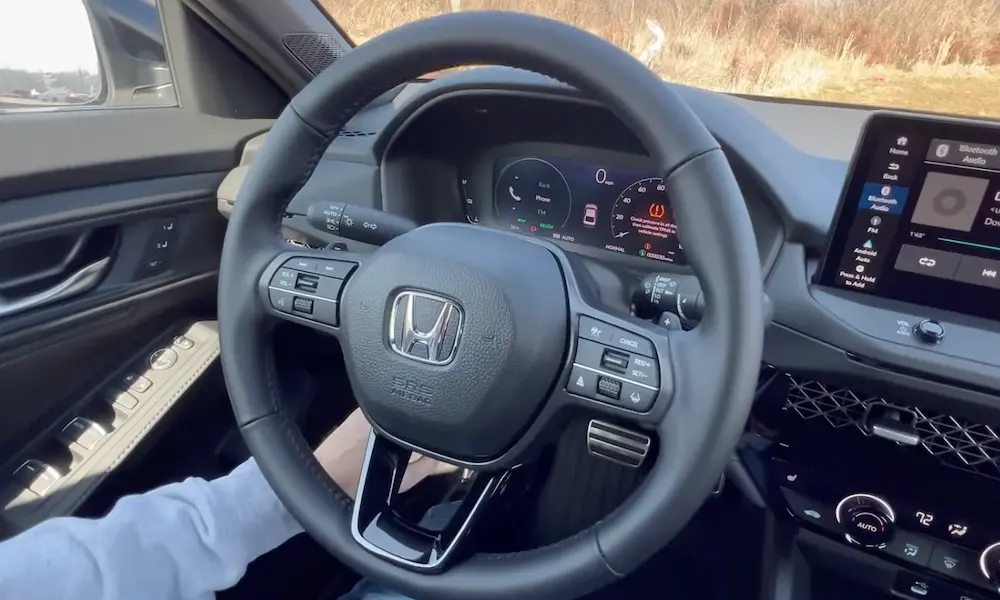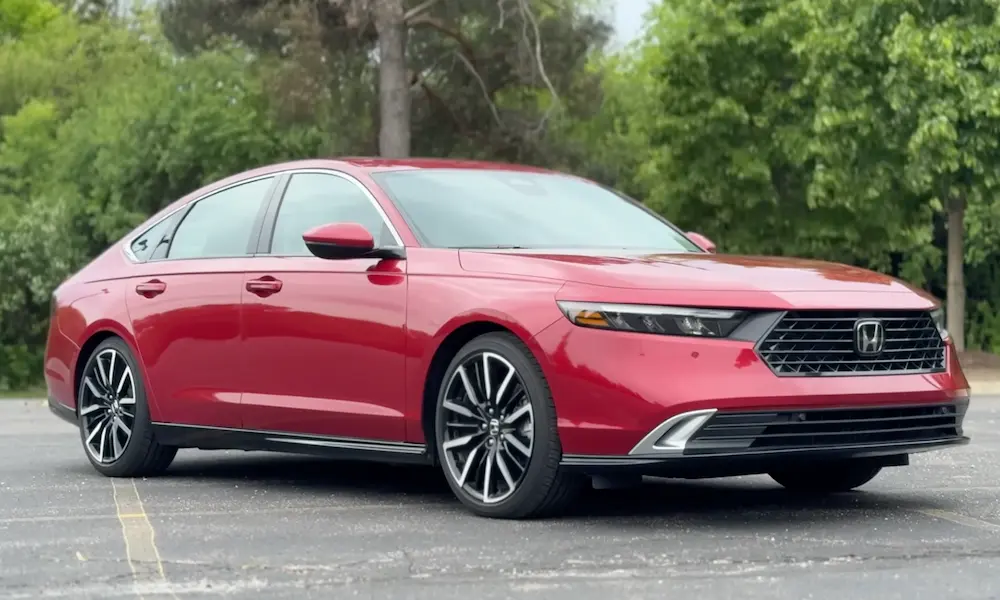Looking to get rid of that annoying tire pressure light on your Honda Civic dashboard? You’re about to discover exactly how to reset the TPMS (Tire Pressure Monitoring System) on your Honda Civic, regardless of which model year you own. This guide covers everything from newer touchscreen models to older versions with button controls.
Why Your Honda Civic’s Tire Pressure Light Comes On
Your Honda Civic’s TPMS doesn’t directly measure air pressure. Instead, it cleverly compares the rolling radius of each tire to detect when one is underinflated. When the system spots a problem, that amber warning light illuminates on your dashboard.
Here’s when you’ll need to reset your TPMS:
- After adding air to an underinflated tire
- Following tire rotation
- After replacing one or more tires
- When seasonal temperature changes affect pressure readings
Remember, checking your tire pressure regularly with a physical gauge is still the most reliable method for maintaining proper inflation.
Resetting TPMS on Newer Honda Civics (2022-2025) with Touchscreen
Got a newer Civic with that sleek touchscreen? The reset process is straightforward:
- Park your car and set the parking brake
- Turn the ignition to “ON” without starting the engine
- Tap the “Home” button on your touchscreen
- Select “Vehicle Settings” (or “Settings” followed by “Vehicle”)
- Choose “TPMS Calibration”
- Press “Calibrate”
- The system will confirm calibration has started
After initiating the reset, you’ll need to drive for about 30 minutes at speeds over 30 mph to complete the calibration process. This method works for most 2022-2025 Civic models including the Touring, EX-L, and LX trims.
Resetting TPMS on Honda Civics with Steering Wheel Controls
If your Civic uses steering wheel controls rather than a touchscreen:
- Park and turn the ignition to “ON”
- Press the “Home” button on the left side of your steering wheel
- Use the selector wheel to navigate to “Settings” and press to select
- Scroll to “TPMS Calibration” and select it
- Choose “Calibrate” and confirm
- You should see a “Calibration Started” message
This method applies primarily to 2022-2023 Honda Civic LX, Sport, and EX trims with the driver information interface.
Resetting TPMS on 2017-2022 Honda Civic Models
For slightly older Honda Civics (2017-2022):
- Get in your vehicle and turn on the dashboard (press push button twice or turn key without starting)
- When the tire pressure light appears, press “OK”
- Press the home button
- Navigate to “Settings”
- Select “Vehicle”
- Choose “Deflation Warning System”
- Press “Initialize”
- Select “Calibration Start”
- Confirm by pressing “OK”
Alternative Methods for Older Honda Civic Models
Using the Dedicated TPMS Button
Some older Honda Civics feature a dedicated TPMS reset button:
- Look for the TPMS button (typically located to the left of the steering wheel)
- Press and hold until the warning light blinks twice
- Drive for about 20-30 minutes to complete calibration
For Models with Different Menu Structure
If your older Civic has steering wheel buttons with a different menu layout:
- Press the MENU button
- Select “Customize Settings”
- Navigate to “TPMS Calibration”
- Choose “Initialize”
- Select “Yes”
- Press MENU to exit
Common TPMS Issues and Solutions
| Issue | Possible Cause | Solution |
|---|---|---|
| Light stays on after reset | Tire pressure still incorrect | Verify all tires match the recommended PSI |
| Light flashes then stays on | TPMS system malfunction | May require professional diagnosis |
| Reset process fails to start | Incorrect procedure | Double-check steps and try again |
| Light returns shortly after reset | Slow leak in tire | Check for punctures or valve stem issues |
What to Do When the Light Won’t Reset
If your TPMS light persists after trying these reset methods:
- Double-check your tire pressure against the recommended PSI (found on the driver’s door jamb sticker)
- Make sure you’ve driven long enough to complete calibration (30 minutes at 30-65 mph)
- Check for tire damage or significant wear differences between tires
A flashing TPMS light when you start your car typically indicates a system malfunction rather than a simple pressure issue. In this case, you might need professional service to diagnose sensor or system problems.
The Importance of Maintaining Proper Tire Pressure
Proper tire pressure isn’t just about avoiding dashboard warnings. It’s about:
- Improving fuel economy (up to 3% better mileage with properly inflated tires)
- Extending tire life by reducing uneven wear
- Enhancing safety through better traction and handling
- Reducing the risk of blowouts and accidents
The TPMS in your Honda Civic is designed to alert you to potential safety issues, but it’s still your responsibility to maintain the correct tire pressure.
Model-Specific Notes for Honda Civic TPMS Reset
| Civic Model | Reset Method | Special Notes |
|---|---|---|
| 2022-2025 (with touchscreen) | Via touchscreen menu | Requires driving to complete calibration |
| 2022-2023 LX/Sport/EX | Via steering wheel controls | Uses driver information interface |
| 2017-2021 models | Via dashboard menu | May have slight variations in menu names |
| Pre-2017 models | Often uses TPMS button | Button typically located near steering wheel |
Getting the Most Out of Your Honda Civic’s TPMS
Your Honda’s TPMS is a helpful warning system, but for best results:
- Check tire pressure manually once a month with a gauge
- Always check pressure when tires are cold
- Remember that temperature changes can affect pressure (roughly 1 PSI per 10°F)
- Reset the system after any tire service or pressure adjustments
By understanding how to reset your Honda Civic’s tire pressure light and maintaining proper inflation, you’re not just eliminating an annoying dashboard warning—you’re ensuring safer, more efficient driving and extending the life of your tires.














